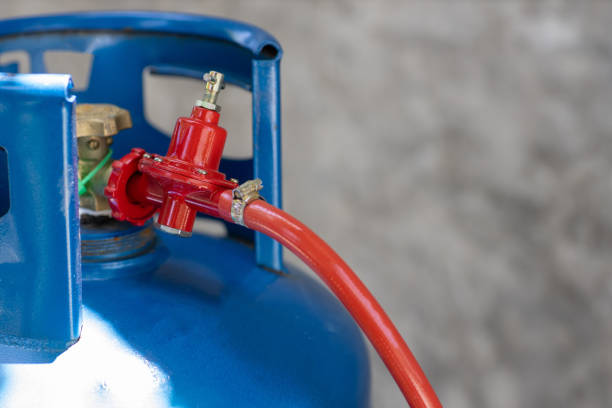As Nigerians grapple with soaring petrol prices, the cost of Liquefied Petroleum Gas (LPG), commonly known as cooking gas, has surged to N1,500 per kilogram.
Suresh Kumar, Managing Director and CEO of NIPCO Plc, expressed optimism that the Dangote refinery and other domestic refineries will help reduce cooking gas prices. He highlighted concerns that over 60% of the cooking gas consumed in Nigeria is imported.
Recent checks revealed that cooking gas prices have reached N1,500 per kilogram at some retail outlets in Ogun and Lagos states as of Sunday. In Abuja, the average price to refill a 12.5kg cylinder has increased by 41.6%, now costing N17,000, compared to N12,000 in July and N11,735 in January 2024. This sharp increase reflects ongoing market trends and could impact consumers who rely on LPG for their cooking needs.
In August, Minister of State for Petroleum Resources (Gas), Ekperikpe Ekpo, promised to address the rising cost of cooking gas, indicating plans to engage regulators and gas producers to find solutions. However, a recent market survey showed that prices have not decreased; in fact, they have risen further. In the Lokogoma area of Abuja, for example, the price of LPG has climbed to N17,000, a significant increase from N12,000 just three months ago, which translates to N1,400 per kilogram. In Kubwa, prices range from N16,200 to N16,500, while areas like Bwari, Kurudu, and Jikwoyi see prices around N1,300.
Ola Oresanya, Commissioner for Environment in Ogun State, noted that many households might resort to charcoal cooking if LPG prices continue to rise.
At the recent National Conference of the Nigerian Association of Liquefied Petroleum Gas Marketers 2024 in Lagos, Kumar pointed out that local production of LPG is still insufficient. He urged the Federal Government to encourage Chevron to convert more of its propane output into butane, which is more suitable for domestic use. Currently, less than 40% of the 1.5 million metric tonnes consumed in Nigeria is produced locally.
Kumar believes that as domestic production increases, particularly with local refineries sourcing crude oil in local currency, LPG prices will eventually decrease. “With the Dangote refinery and others ramping up local production, we expect a reduction in reliance on imported LPG, which will help stabilize domestic prices,” he explained.
He also emphasized that boosting local production could attract further investment in pipelines, storage, and bottling facilities, as well as expand retail outlets across Nigeria. NIPCO has the capacity to handle up to 5 million metric tonnes of LPG annually, which aligns with the goal of increasing domestic supply.
Kumar reiterated NIPCO’s long-term vision of becoming a leader in LPG marketing and distribution, highlighting Nigeria’s vast gas reserves of over 200 trillion cubic feet. He expressed confidence that the company’s infrastructure investments, including a significant expansion of its LPG facility in Apapa, will support increased consumption.
Despite the current challenges, Kumar remains optimistic about the future of LPG in Nigeria, stating that while high prices have constrained consumption growth, the market is likely to stabilize as more players enter the gas processing sector. He urged collaboration with the Nigerian Midstream and Downstream Petroleum Regulatory Authority and other stakeholders to eliminate gas flaring and enhance domestic supply, aiming to boost consumption from 1.5 million metric tonnes to at least 5 million metric tonnes annually.

